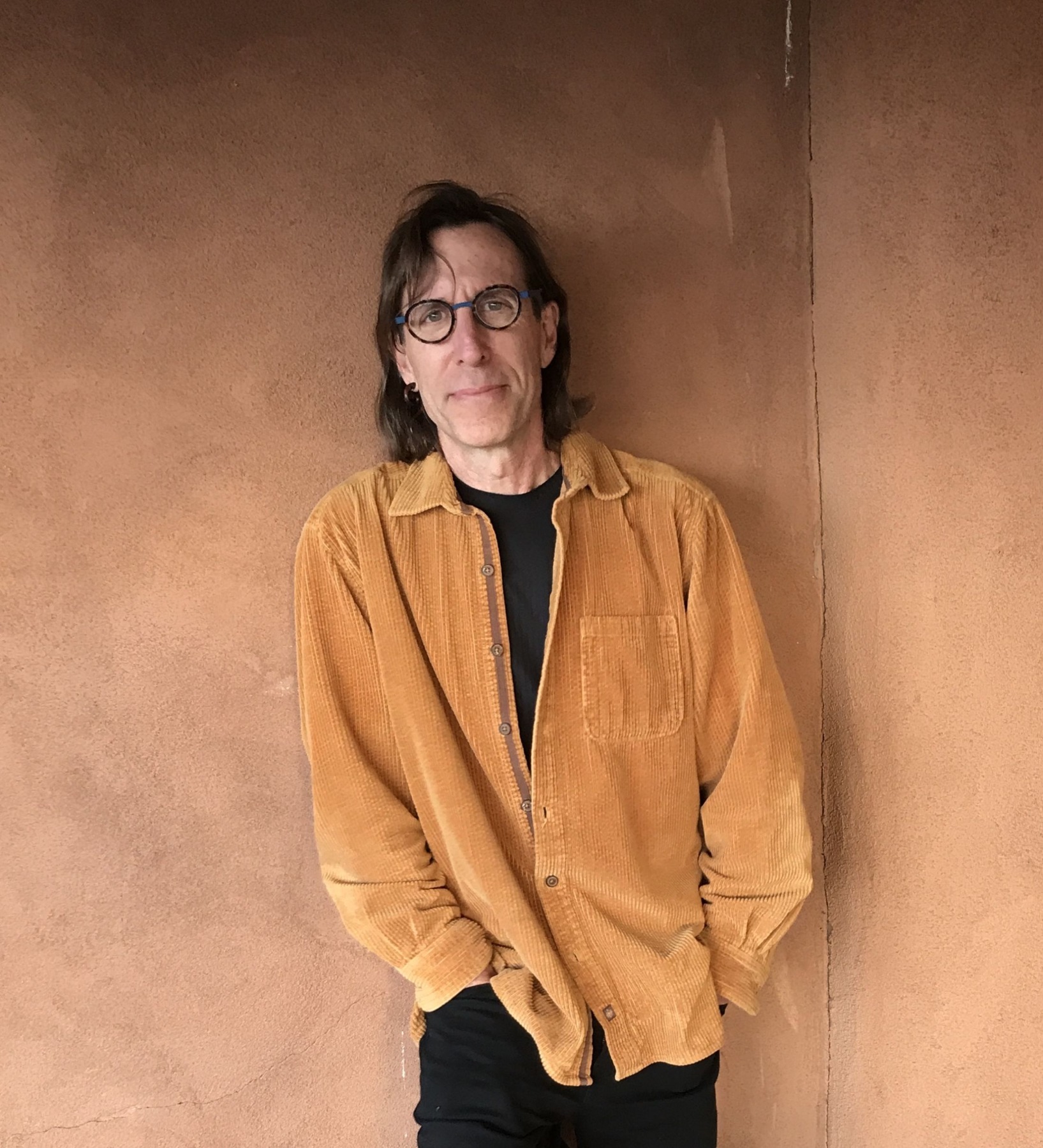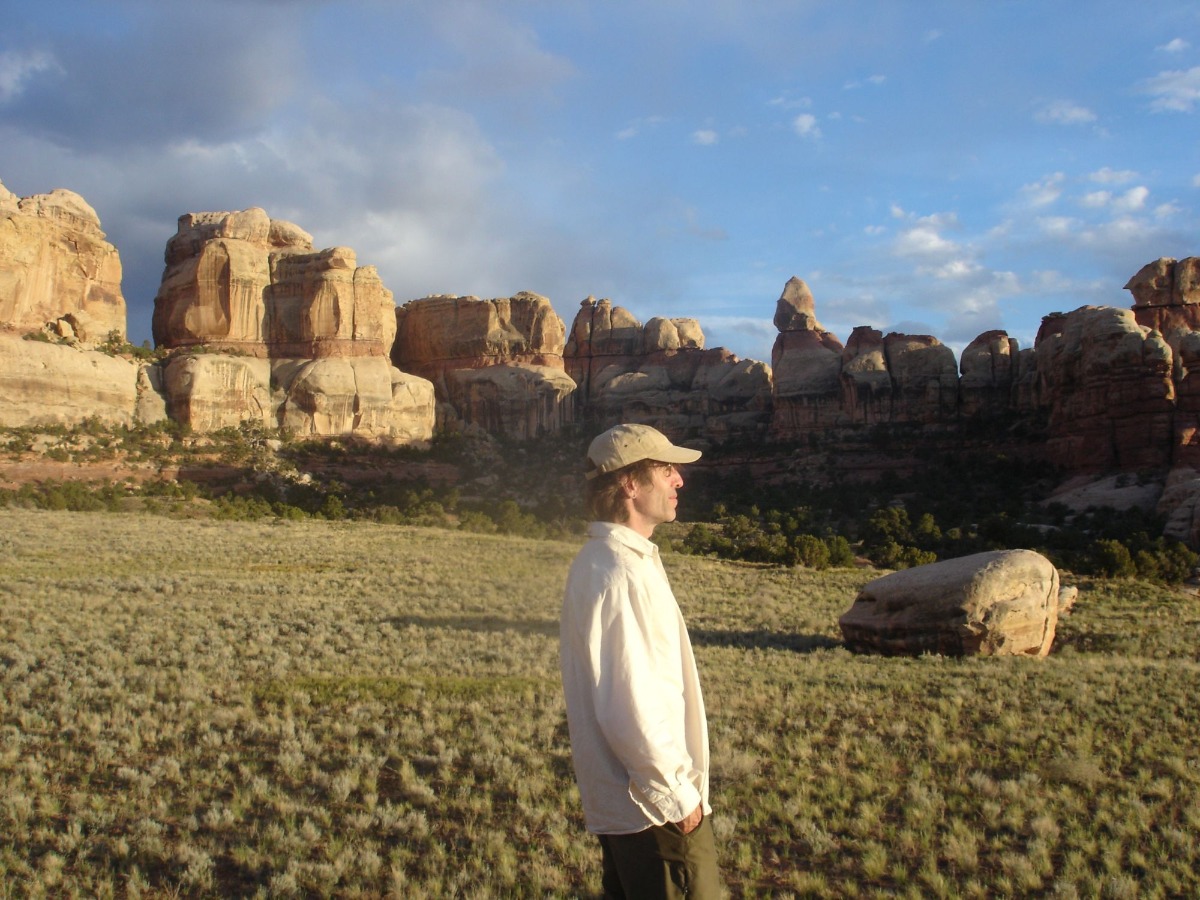
Each thing dances in the present moment
Helmuts Caune
A conversation with cultural ecologist and geophilosopher David Abram
Thinking about our relationship with nature is complicated. Perhaps no more evidence is needed for this complexity than the structure of the previous sentence: it presupposes some kind of “us” and something else that we can apparently have a certain relation to. Yet it’s clear to any child that, in more ways than not, we ourselves are inevitably a part of this “something else”. Still, the all-so-common structure of thinking about “us” as being somehow juxtaposed to “nature” – or, for that matter, any “other” – remains dominant.
For centuries, philosophers have pondered the relationship between the human consciousness and all the things it is not, but only in the past few decades – perhaps for pragmatic reasons – has this pondering taken an environmental and ecological turn. One of the foremost and most eloquent voices in this field has been American thinker, writer and performance artist David Abram (born 1957), who is credited for bringing together the phenomenological tradition of modern philosophy with contemporary environmentalism or, as I like to interpret this achievement, he has been one of the first to ask approximately the following question: if we really paid close attention to the way the world presents itself to us, wouldn’t vast parts of our recent way of life start to seem inadequate?
In his work (and perhaps his life as a whole), Abram seeks to find new linguistic, cognitive and sensory tools that may help us bridge the divide between the categories of “us” and “nature”. His two most prominent books are The Spell of the Sensuous: Perception and Language in a More-Than-Human World (1996) and Becoming Animal: An Earthly Cosmology (2010). Having travelled around the world and being heavily influenced by working with various indigenous peoples, Abram started to become frustrated with the environmental vocabulary of the mid-1990s, and thus began writing his best-known literary work. He is now the director of the Alliance for Wild Ethics (AWE), “a consortium of individuals and organisations working to ease the spreading devastation of the animate earth through a rapid transformation of culture” that works with the arts as well as natural sciences “to provoke deeply felt shifts in the human experience of nature”. Abram resides in the mountains of New Mexico.
How did you grow to care?
I reckon that we’re all born with this kind of affinity for the living land and with great instinctive solidarity with, first of all, the bodily presence of our mother, but also with the body of the ground underfoot, and the air we breathe, and the waters as we first meet them in a stream, or a river, or at the edge of the ocean. I think that for me the trick was that this spontaneous early affinity was not completely destroyed by the over-objectified ways of perceiving and speaking that I was forced to learn at school. Somehow this early solidarity was never completely eradicated.
In truth, I think this childlike affinity with the animate land around us can never be completely eradicated from anyone, for then their heart would stop beating. Because it seems to me that the heart is just steadily fed by the nourishment that comes from the feelings and the textures and the colours of our world, through our animal senses. Sensory perception, it seems to me, is a kind of ongoing nourishment of the organism that enables our body to flourish and our heart to keep beating. Learning to care is just a matter of waking up long-forgotten or dormant affinities that have always been quietly operative underneath our more conscious thinking. So it seems to me.
But you grew up in New York, right?
Yes, in the suburbs of New York City. But even while growing up on the outskirts of a very large city, you’re still under the influence of gravity, which pulls you ceaselessly into contact with the Earth, and you’re still under the influence of the air you breathe. There are so many more-than-human aspects of life even in the middle of a large city. We’re in contact with many more agencies and many more animate lives besides the human. But at a certain point I just felt I wanted to be in a more full relationship with a terrain that did not have so much human technology everywhere I turned. And so I chose to live in a place where the human population is much smaller, and the population of other animals much larger, and so the experience of the ground and the sky, of the mountains and the rivers, is much richer.
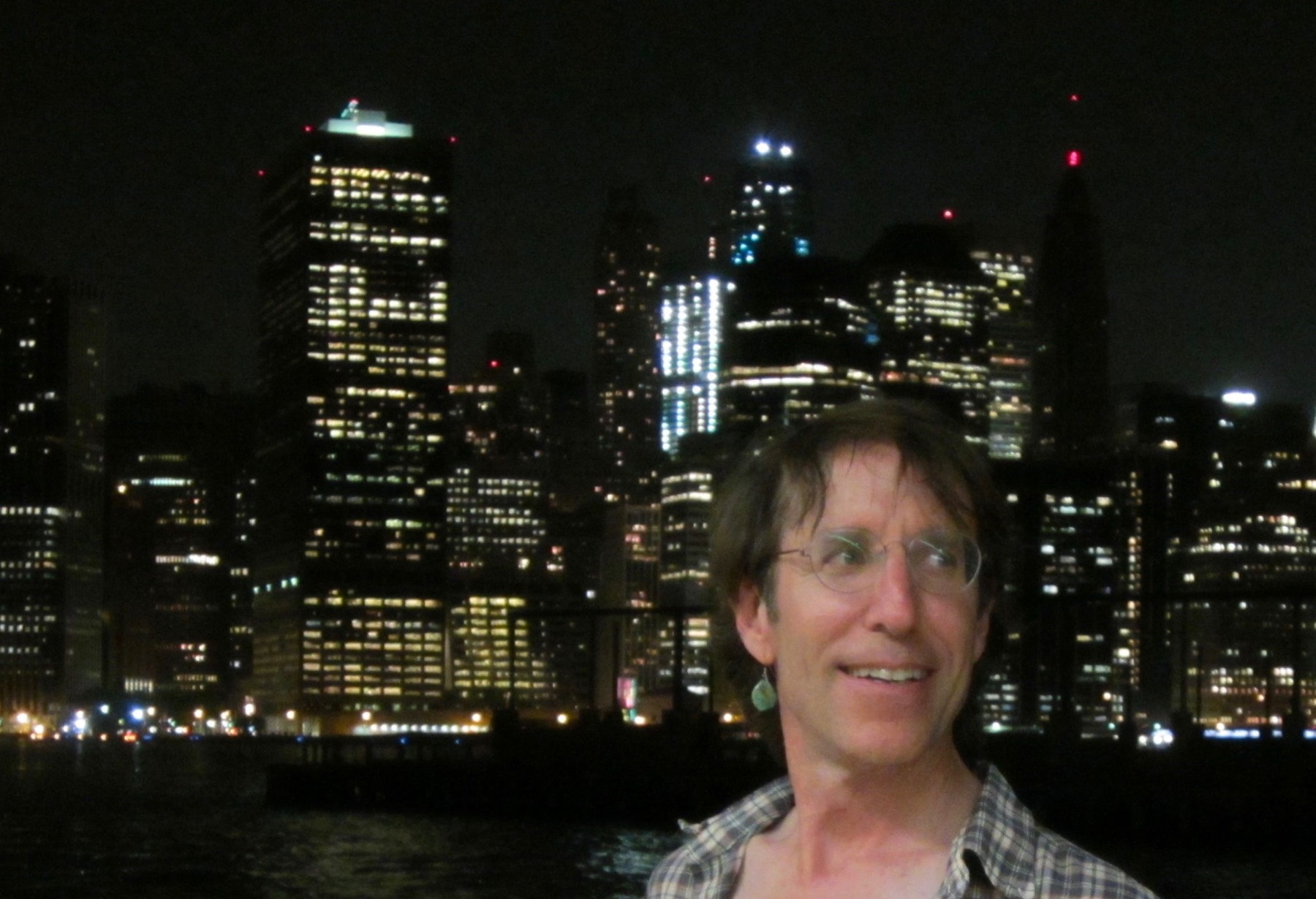
You call yourself, or have been called, by many terms: cultural ecologist, geophilosopher... Is that how you perceive yourself? What do these titles entail as you understand them?
These are just simple ways to introduce myself and the sort of things that compel my curiosity and fascination. My work as an ecologist has focused primarily on what we might call the ecology of perception or the ecology of sensory experience. I’m interested in how the activity of our eyes, our ears and skin, and even our nostrils, functions to bind our separate nervous system to the encompassing ecosystem. For me, perception functions like a glue binding our individual nervous system to the wider ecology or ecosystem.
But I’m also well known for my work on the ecology of language. I think The Spell of the Sensuous was the very first book addressing the ecological dimensions of language, the first to ponder how it is that what we say so profoundly influences what we see, hear or even taste of the earth around us. I’m convinced that there are ways of speaking that actually inhibit the spontaneous, sensory kinship between our animal senses and the sensuous surroundings. But I’m just as convinced that there are other ways of speaking waiting to be found that actually encourage and enhance that instinctive reciprocity between the human animal and the animate Earth.
For me, perception functions like a glue binding our individual nervous system to the wider ecology or ecosystem.
I suppose one example of finding such a language is your concept of the “more-than-human world”. Please tell, in what sense is the concept of the more-than-human world not just a truism?
The more-than-human world is simply meant as a phrase to speak of what we for several centuries have commonly called “nature”. When I began writing my book The Spell of the Sensuous, I found myself dismayed by the lack of vocabulary to use when speaking of the earthly community of plants, animals and landforms. When one speaks of “nature” in English, it’s almost always juxtaposed with, or set in opposition to, “culture”. Human culture is placed on one side of a divide, and nature is on the other. And I was not happy about this division.
So I began writing, first, about “human nature” and “non-human nature”. But then you still have that same fence, and the same division on two sides of that fence. I realised that what I was trying to speak about was a very different relationship, the relationship of a subset within a larger set. The world of culture and human creativity – of human language, literature, the arts, architecture, technology, all that is associated with culture – exists (as I see it) within nature and is completely a part of and immersed in the wider earthly world. The living earth necessarily includes humankind and our culture, but it also necessarily exceeds humankind and all our creations. So the more-than-human world means a world that includes and permeates the sphere of human culture, but one that also exceeds human culture – it is always much more than just us. So the phrase “a more-than-human world” is actually a simple description of the earthly biosphere that both includes us and always exceeds us.
The living earth necessarily includes humankind and our culture, but it also necessarily exceeds humankind and all our creations.
By “being a part” of the wider world, you mean that human culture consists of the same particles, or that it necessarily stems from the wider world? In what ways exactly does it constitute a part of the wider world?
Again, our culture is obviously embedded in, permeated by, undergirded by, supported and sustained by the animate earth. The world that many people still call “nature” can no longer be understood as a passive background upon which human history unfolds. In speaking of the more-than-human world, I wanted to suggest that the elemental earth around us is not in any way passive; it’s filled with dynamism, with meaning, with experiences in many diverse forms and shapes, some of them solitary, some of them collective. The collective experience, for example, of other social species, whether carpenter ants or wolves or orca whales. By the way, I saw a wolf today in the wild. She was high-stepping through the snow – it was a wonderful sight!
To say that the human world is entirely a part of this wider world is similar to saying that my kneecap is a part of my body or that a tree exists as a part of the Earth. It is to affirm that humankind is completely, utterly and totally part of the same world inhabited by other animals, plants, mountains, winds and waters and soils. So it’s actually a very simple thing I’m trying to describe. Exceedingly simple, but we had no way to speak of it in English.
The world that many people still call “nature” can no longer be understood as a passive background upon which human history unfolds.
It does sound simple, but maybe that’s because it’s already been twenty-four years since you coined the term. Perhaps it’s already become a part of our understanding?
Not so much around here, I’m afraid. In America there’s still a sense that, although humans are part of nature, we’re also exempted from nature; we’re in many ways not a part of nature. And many aspects of human culture are seen as transcending the natural world with all its difficult constraints. But as a writer and philosopher, I seek fresh ways to speak in the hope of shifting, by whatever increments, the perceptual experience of my readers. I’ve seen that the phrase has swept through the world of environmental philosophy and has become a common phrase to designate the natural world, but it’s still hard for many people to fully grasp or fully understand it.
There’s now a very different word that has recently entered the lexicon, both within the sciences and the humanities and, I daresay, within the art world as well. That word is “Anthropocene”.
Yes, of course.
Anthropocene, as we all know, is intended to designate a new geological epoch in which humankind has become the dominant geological force affecting all kinds of changes within the biosphere. Now, I have no trouble with what this word purports to describe; it’s been clear to me since I was a child that we humans are a very powerful geological force, and have been for a very long time. And perhaps it’s useful to name the era in which humankind has become so powerful. (Although, of course, we’re hardly the only powerful geological force. There are many other agential powers involved.)
But to call the era by this name, the Anthropocene, is to me exceedingly problematic. I’m dismayed by the term. I would even say that I’m disgusted by the term. It’s such arrogance – sheer hubris, really – to give the name of our species, anthropos, to a geological epoch, when most geological epochs last for tens of thousands, even hundreds of thousands of years. “Anthropocene” is the most anthropocentric name possible. It basically implies that humankind is coextensive with the biosphere, that we are now the primary force within the biosphere. It basically implies that there’s nothing that exceeds us, nothing on earth beyond the reach of humankind.
So, you see, the centrality of this word today is in direct conflict with the notion of the more-than-human world, because the latter implies that there’s a great deal about the biosphere that exceeds the human estate, a great deal that eludes our understanding and control. The more-than-human world holds us in a stance of humility relative to the wider earth. The Anthropocene however, erases any possibility of a turn towards humility on the part of humankind; it says that we humans are basically the gods of this world. Because we wrecked this biosphere, we now own it. (That’s a phrase storekeepers use: “You broke it, you own it!” Meaning that if you break a piece of merchandise, you must buy it.) We are now the masters, and directors, and engineers of the biosphere.
I just don’t think that our species, on its own, has anything approaching the sort of intelligence and wisdom that would be necessary to consciously take the reins of this world, to engineer or even manage the earthly biosphere.
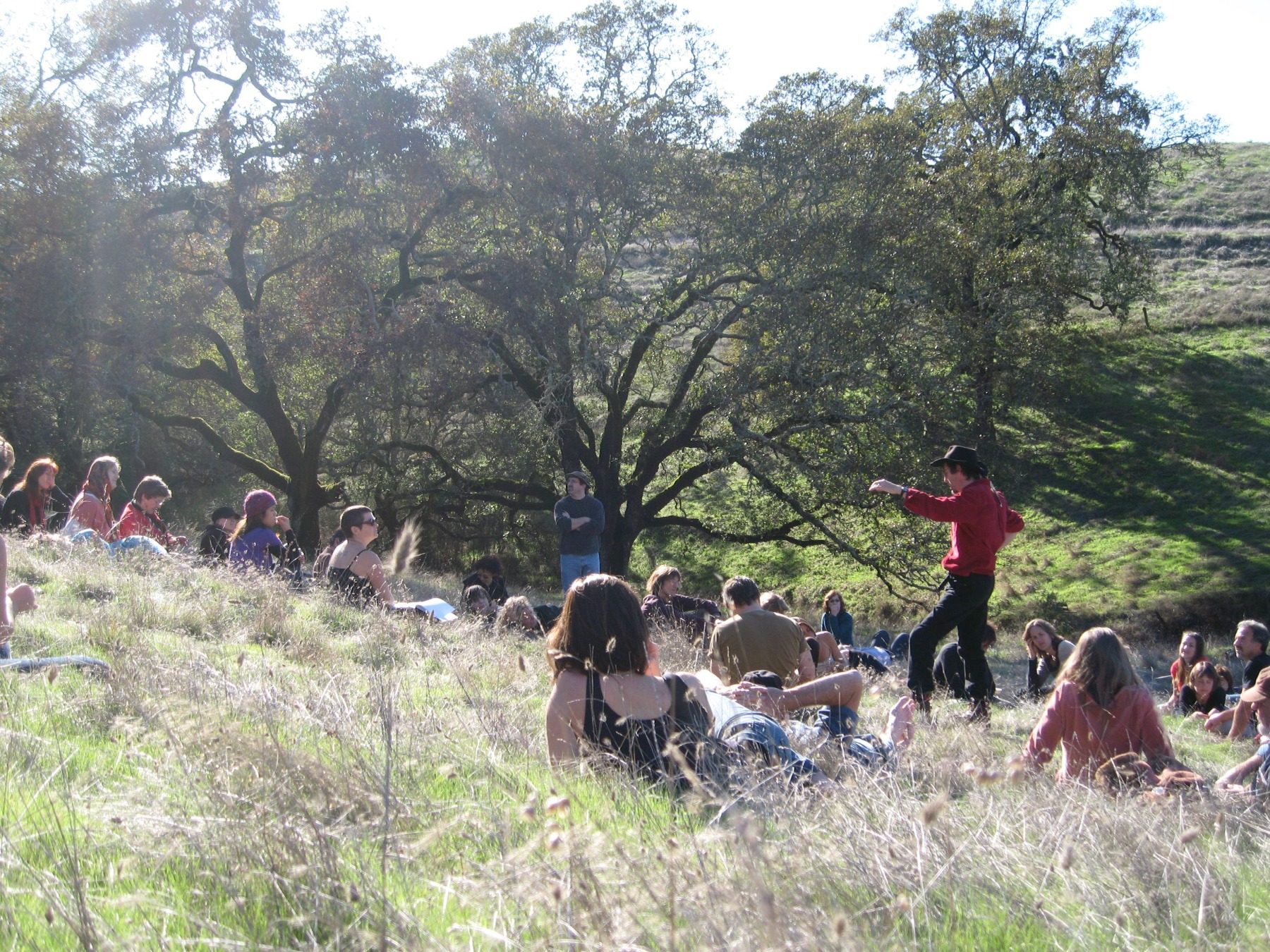
Is there any species alive that would be more deserving of having a geological epoch named after them?
Of course not. What makes the biosphere function and flourish is the fact that it’s a massively cooperative endeavour between innumerable species. The oxygen that all of us animals need to breathe for our respiratory metabolism is precisely what all the green and rooted plants are breathing out. Meanwhile the element that those plants, grasses and trees need to take in for their photosynthetic metabolism (carbon dioxide) is precisely what all of the animals are breathing out. So…what we animals breathe out, all of the plants are breathing in, and what the plants breathe out, all of us animals are breathing in! The atmosphere of this planet is born from the interbreathing of the plants and the animals, along with the soils and the oceans – all of us collaboratively percolating into existence this meaning-filled plenum we call the atmosphere, the air, this invisible element that makes all life possible. No single species is in control here. All of us are collaborating, improvising and giving rise to the ongoing upsurge of the present moment.
No single species is in control here. All of us are collaborating, improvising and giving rise to the ongoing upsurge of the present moment.
You frequently mention the word “humility” as some apparently necessary attitude. But if humans adopted more humility, would that not sort of invalidate our capacity to act, to fix what’s broken, what’s trashed? If anything is to be done at all, we seem to be the species with the technological and intellectual capacity at least remotely suitable for the job. The way we manage to damage it, we are also the species that seems to have some capacity to do something about that damage. Wouldn’t an attitude of humility be something that hinders us from acting?
It’s a good question, but I would say quite the opposite. Those who have the capacity and even, perhaps, the responsibility to act, must cultivate humility so that they do not act rashly, in a way that brings more harm than good. The stance of humility is not a stance that’s incapable of acting. It’s a meditative or contemplative awareness of the fact that our actions have great consequences, and so we must take real care to do the least harm. Humility does not remove the ability to act, but it clarifies action and makes it much more elegant, eloquent and generous. It places action in service not just to oneself, but to the whole community of which you are a part.
Another thing about humility is that, at least in English, it’s deeply related to the word “human”. How do you say human in Latvian?
Cilvēks.
And humility?
We should call this new era the Humilicene.
That would be quite different. “Humility” in Latvian is pazemība, and it has the same root as the word zeme, which means “earth”. So there is something to it, I guess.
There you go. In English, the word “human” and the word “humility” both come from the Indo-European root dhghem, which is also present in the word “humus”, which means earthly “soil”. So, the word “human” basically means “earthling”, a being of the earth, of the soil. A person who has the quality of humility is one who is close to the soil, to the ground. I think, indeed, that we are most human when we are humble. We’re arrogant when we think that we have the capacity to act without reflecting on all of the ways in which we are also foolish. Then we are not being very human. There’s something essentially human about humility, just as the two words suggest. If we wanted to name this new geological epoch in a way that underscores and emphasises the centrality of our species and our influence in this era, then we should not draw upon the word anthropos but instead use the word “human”. We should call this new era the Humilicene.
Certainly, continuing our long habit of human exceptionalism will only intensify the onrushing disaster.
Humilicene.
The era of humility. We’ve entered an era in which we’re being increasingly surprised and startled by the destructive effects of our own actions. And so we’re needing to become much more humble in our actions; we need to begin thinking of ourselves as a plain member of the earthly community, a plain citizen of the biosphere, a single participant in a more-than-human collective, with responsibilities to all the rest. So it seems to me. The Humilicene would be the technical term, but if we wanted more of a folk tradition or storytelling term by which to name the era we’re now entering, as it might be known in the future, we should perhaps call it the Humbling.
Certainly, continuing our long habit of human exceptionalism will only intensify the onrushing disaster. Our arrogance and hubris, as a species, is what has gotten us into this very sad situation of runaway climate change, cataclysms unfolding on every hand – hundred-year floods, out-of-control fires, hurricanes with a strength and ferocity that have never been witnessed before, global pandemics. But also the loss of so many other species – whole other worlds of sensitivity and sentience now being pushed to the very brink of oblivion, and then kicked over that brink into the abyss of extinction by our carelessness and callousness. All of this has been triggered, and fed, by our long assumption that the rest of nature is merely the passive backdrop against which human history unfolds, an inert set of resources and mechanically-determined processes which we have every right to use for our own exclusively human goals. As it turns out, this long-standing and habitual arrogance is wrecking the very world that we depend on for our breath, for our food, for life itself. So this is why I think a turn toward humility – stepping back from the headlong rush of “progress” – is a necessary first step for us today.
Earlier, you mentioned that at least in American culture there are still aspects that people want to consider as transcending nature or the natural world. One thing that comes to mind in this regard is, of course, the Abrahamic religions, within which one would quite surely hold that there are parts of our existence that transcend earthly life. Do you think it’s possible for a Christian, a Jew or a Muslim – or, by extension, a Westerner – to properly integrate the more-than-human world in their already existing worldview?
I, for one, feel very close to my own Jewish ancestry. I also think that the Abrahamic religions, as you call them, are each very different from one another and that it’s a mistake to think of them as one thing. Yet, of course, there are similarities. We sometimes speak of these religions as the three Religions of the Book, which suggests that they each involve a very intimate relation to the Book, to scripture, to writing and the alphabet. It seems to me that cultures that predate the formal writing systems – the indigenous cultures of the world, such as the diverse cultures native to North America, which are very numerous and very different from one another (or the indigenous traditions of the Amazon Basin, or the Sami peoples of northern Scandinavia, or the many cultures indigenous to Africa, or the aboriginal peoples of Australia) – all of these exceedingly different oral cultures share a few things in common. And one of these is a tremendous respect for the more-than-human world in the sense of humankind as nested within a much larger community of beings.
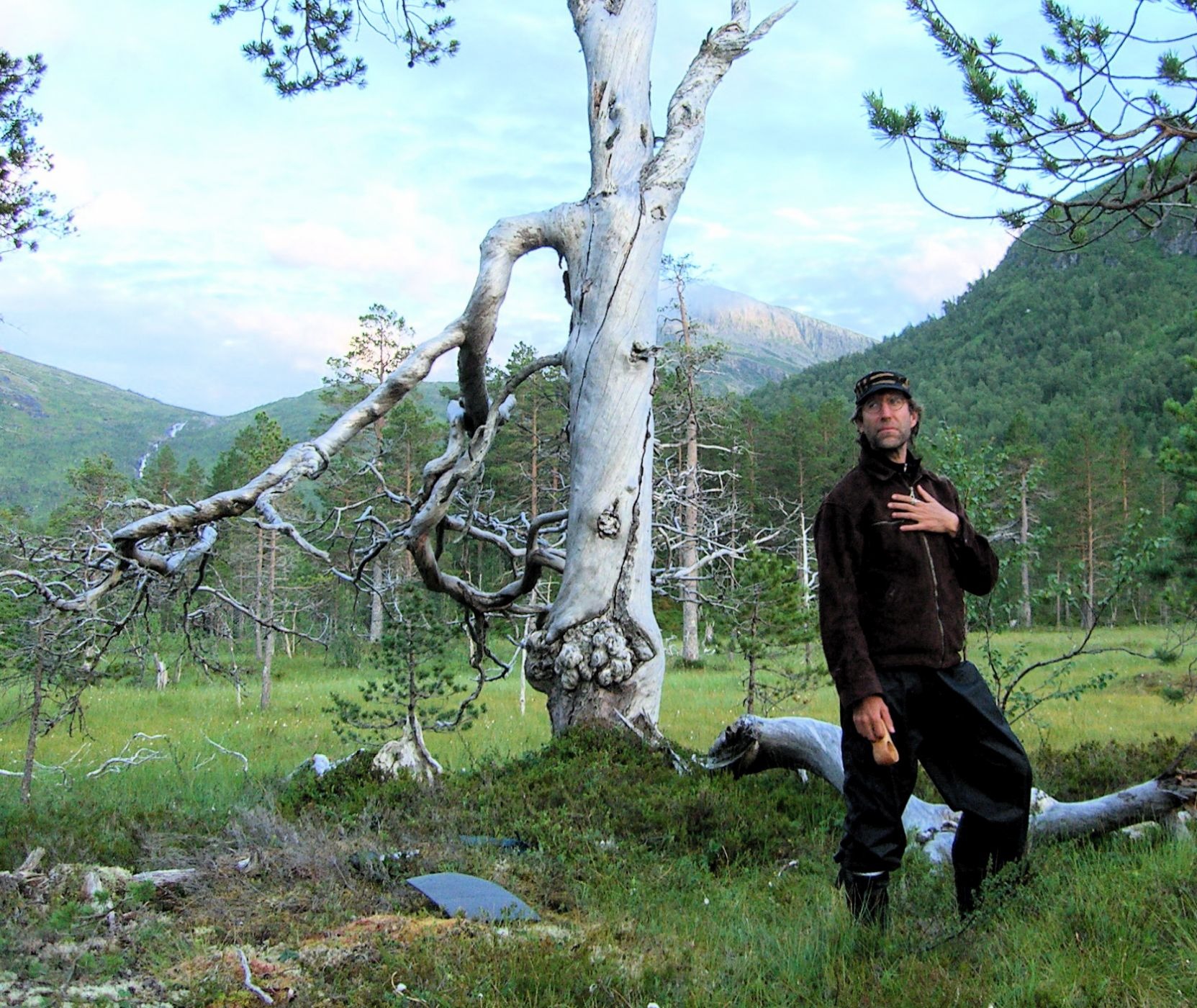
They also share a curious style of perception that anthropologists chose to call animism. Animism is a style of perception that experiences everything as alive. Not just other animals and plants, but even rocks, mountains, winds and weather patterns, rivers, dry river beds, forests. Every one of these entities is felt to have its own expressive agency. Nothing is definitively inert or inanimate, everything is animate. It’s a curious thing, this commonality. There seems to be something about oral cultures (cultures that developed and thrived without any highly formalised system of writing) that holds them in a more attentive and humble relationship to the living landscapes that surround them. Most such cultures live in an intimate reciprocity with the local earth.
Deeply traditional, indigenous cultures tend to be oral cultures, cultures that engage in language and communication face to face, using their voice rather than the written word. Oral cultures are cultures of story, of face-to-face storytelling. And the rest of nature often plays a very large role within their stories. I think it’s important to think about story and storytelling as a very different form of languaging. It might be good to replenish the oral, storytelling aspect of our own culture. Oral eloquence, and poetics, too, are central to many oral cultures – not poetics in the sense of poems written for poetry anthologies, but poetics as the practice of speaking as a full-bodied human animal to other fully embodied human animals, not using language as a disembodied mind writing for other disembodied minds. Speaking with words and phrases that tickle the skin, or that grate on the ears, or in some other manner engage the whole body that’s listening – because the speaker is speaking from her whole animal organism. So in these ways, I think we can begin to open our language back on to the more-than-human field of voices that don’t speak in words but in song (like birds and humpback whales) or in rhythm (like the speech of crickets and of waves breaking on the beach). Even the wind whooshing through the branches can be felt as a kind of voice. These beings don’t speak in words, yet in some way each of these forms of expression carry meaning, and they can even participate in and influence the conversations that we have among ourselves.
Now, back to your question. For the cultures of the Book, it’s a radical and rich new possibility to bring the living, animate Earth into the picture. For my tradition, for the Jewish tradition, it’s perhaps not so difficult, because we don’t really have a sense of God as existing outside of the sensuous world in an otherworldly heaven. But even among my Christian sisters and brothers there are so many who have now become deeply ecological in their thinking. A close mentor and friend of mine was a Catholic priest and theologian named Thomas Berry, although towards the end of his life many people were calling him a geologian, because for him the Earth itself was the divine presence that was always coming into being through the unfolding of evolution.
But then there’s another, very different Berry – the American philosopher, essayist, poet, and novelist Wendell Berry, who is both a deeply religious Protestant man and one of the most clear-sighted and radical ecological thinkers of our era. Wendell is a profoundly Christian farmer and philosopher and something of a prophet who understands the limits that are utterly necessary for a good life and for ensuring that the good life is even possible not just for ourselves and our descendants but for the land itself – for the woodlands and the wetlands, for the whole of the breathing terrain. So I don’t think it’s necessarily such a big leap for a believing Christian or Jew or Muslim to open her thinking onto the animate, more-than-human earth.
Climate change is perhaps calling us to remember the sacredness of the air, of the invisible elixir born of our interbreathing with every other species.
If we reflect upon the word “spirituality”, we realise that the word “spirit” originally comes from the Latin word spiritus, which originally means nothing other than “breath” or “gust of wind”. The spirit is originally the wind, the invisible air that we share with the other animals and the plants. The breath. And as I mentioned before, speaking of the air, what a wonder it is that what all of us animals are breathing out is exactly what all of the plants are breathing in, and what the plants then breathe out is what all of us animals are breathing in! The invisible atmosphere is born of this astonishing reciprocity, born of the interbreathing of all life. From a spiritual perspective, the rapidly escalating catastrophe of climate change is the simple consequence of our forgetting the sacredness of the unseen atmosphere, of our forgetting the holiness of the air in the modern era and treating it instead as an open sewer, as a magic dumpsite in which to throw all the toxic by-products of our industries. Climate change is perhaps calling us to remember the sacredness of the air, of the invisible elixir born of our interbreathing with every other species. Perhaps climate change will force us to remember that the spirit is nothing other than this invisible medium in which we find ourselves immersed with all the other animals and plants, that the climate and the air is a vital organ of the animate earth and the very source of what we now speak of as the spirit.
Surely it’s time to move beyond the age-old assumption that spirit and matter are two entirely different things, time to recognise that matter itself is already self-organising and animate from the get-go – it doesn’t need that bright fire of spirit to descend from some heaven beyond the stars to animate it and make it come alive – time to recognise that matter already breathes, that the material world is already spiritual.
I think that no matter whether we consider ourselves Christian, Jewish, Muslim, Buddhist, Hindu or atheist, there’s something hugely important now about turning towards whatever indigenous, place-based cultures still exist in order to listen and learn from these old ways about how to live well in relation to the rest of the breathing Earth. There’s something about the old, animistic sensibility that’s deeply right and true and necessary to prevent human life from destroying the Earth that sustains it. The animistic intuition that everything is alive, including the Earth itself, actually preceded all of the great world religions, and it will likely outlast all of those world religions, because it has always been underneath all of the world religions, quietly nourishing them from below like a subterranean stream. Animism is not a belief system. It’s the body’s instinctive animal faith in the active support and sustenance of the ground underfoot, a bodily, animal faith in the goodness of the soil, in the germination of seeds, in the dynamic nourishment of the invisible air, in the replenishing power of rain. Animism is simply our body’s spontaneous faith in mountains and rivers and in the goodness of the breathing Earth.

Do you think that the same aliveness of divinity that you mentioned that purportedly exists in spiders and stones can also be ascribed to the plastic that has become a part of the soil forever? Or does plastic not merit that divinity?
Well, I was only using the word “divinity” because you asked me about the Abrahamic traditions. I was speaking of the vitality, the animacy, the dynamic agency that all things have. And I think to say that everything is alive is to say that truly everything is alive, and so, yes, even plastic. Petroleum products, too. Although to say that everything is alive is not to suggest that everything is the same, not at all. On the contrary, it’s a way of opening up to the outrageous differentiation of things, the multiple differences between things. If I acknowledge that everything is alive, I can then ask of anything – how are you alive? I can ask of a slab of granite – how is your way of life (or your unique dynamism) different from the dynamic life of this sandstone boulder? Because each thing has its own dynamism, its pulse, its unique way of dancing into the present moment. And plastic is one of the most important elements to which or to whom we have to ask this very question: How are you alive? What is your form of agency?
Many people feel that plastic has a kind of deadening effect on themselves and on the world. But if we assume that the plastic itself is utterly inert, or utterly inanimate, then we cannot not account for the dynamic, deadening influence it has upon us and upon the world around us. I also must acknowledge that the glasses I wear (or the lenses within my glasses) are fashioned of plastic, which enables me to see much more clearly. And so I have some gratitude even towards this very difficult and deadening element. By opening up a more conscious, questioning relationship even with our plastic artifacts, we can begin to learn to limit our participation with them…and gradually constrain the amount of plastic in our lives to very small regions, so that we don’t end up with these immense whirling islands of plastic in our oceans, choking and poisoning so much of our marine life.
It seems that a lot of problems arise from language and the fact that we have this word “nature”, or that the Greeks had the word phúsis, as something that we can distinguish from something that is not nature, and then classify it and interact with it from the outside, so to say.
Yes. Or perhaps that has been one of the consequences of monotheism – the sense of a divine view-from-outside-the-world, pondering the rest of nature from a perspective outside that nature.
As a creation given to humans to do with whatever we wish.
Western science and technology took shape within a deeply monotheistic context, and therefore the idea of pure objectivity is very much like the idea of a world seen from the outside, from a God’s-eye perspective. After what some people in Europe experienced as the “death of God” – as though the external divine Source of the world had somehow dissolved or vanished – the new scientific intellect installed itself in the very same place, or non-place, that had been vacated by the monotheistic God. So now it’s our modern, “objective” science that looks upon the world as if from a perspective outside that very same world.
Nonetheless the natural sciences have gradually discovered many astonishing, useful and even mind-blowing things, including the recognition, since Darwin, that we humans are born of this Earth, like every other animal, and like all of the plants – that we’re evolved from this material Earth, and therefore we’re intimately related to every other earthly creature. That we’re kindred to earthworms and humpback whales and oak trees, intimately entangled with every other earthly organism. And it’s natural that the great religions themselves would begin to take on board these new insights and recognitions.
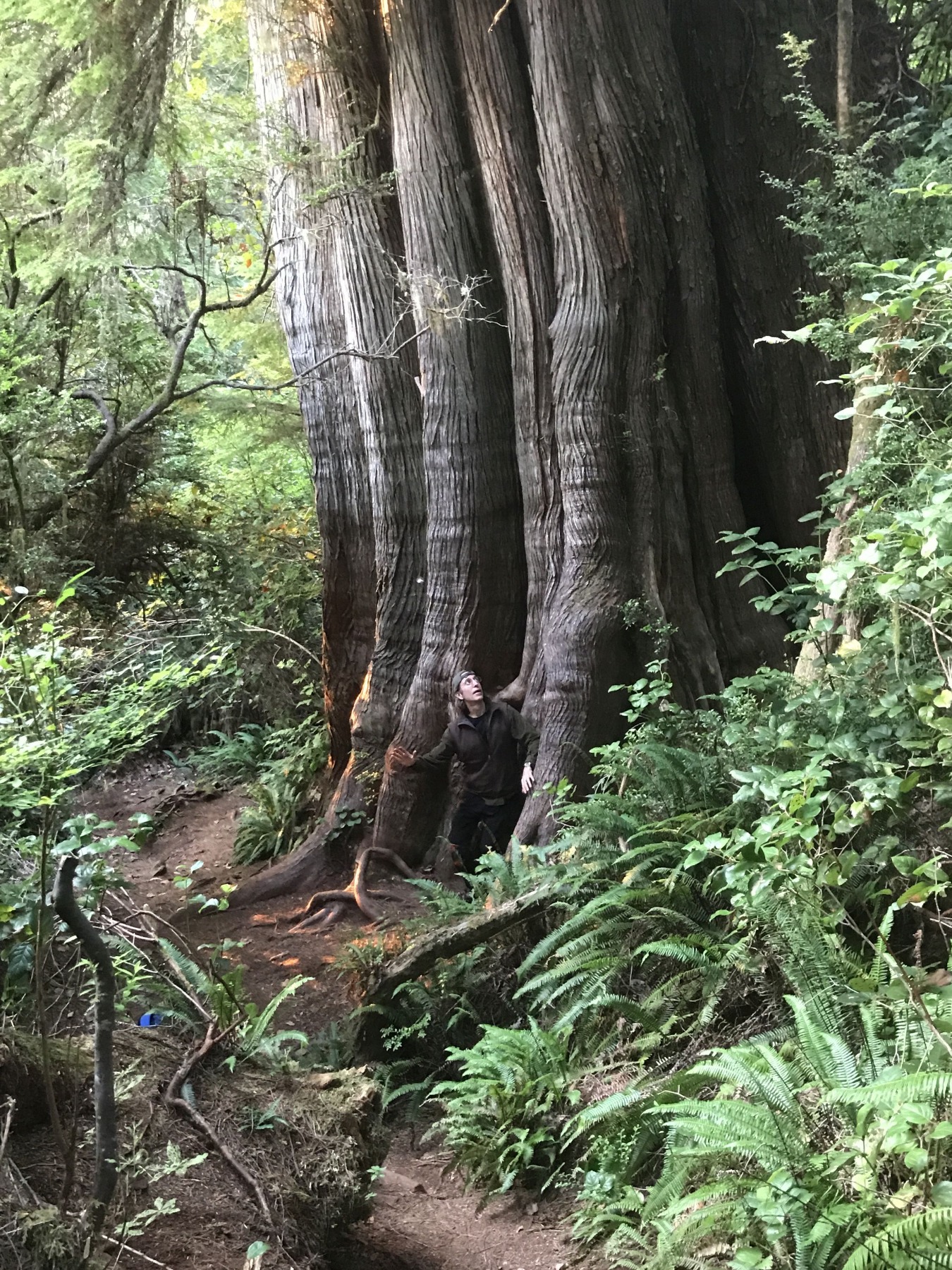
And so there’s a dawning awareness that we humans are fully a part of the more-than-human natural world. But in order to come to this awareness, it seemed we had to believe, for a time, that we were not a part of nature. To rediscover ourselves as a part of nature is not necessarily to renounce our transcendence and our divinity, and so to reduce ourselves to an entirely objectified and mechanical nature; instead, it’s to recognise the divinity of the whole earth, to recognise the divinity of a grizzly bear and of a spider weaving its web, the wonder of a wolf and the rich intelligence of a wetland. It is to recognise the living land as a kind of ongoing, active transcendence. Every form of life is transcending itself continuously. Each ecosystem has its intelligence, its unique style of awareness. Any healthy forest itself is composed of so many different shapes and styles of experience and sentience – even the roots of the trees turn out to be communicating with one another through the network of fungal filaments within the soil. What a wonder!
There’s this dawning recognition that perhaps the divinity that we were projecting somewhere else is actually none other than this breathing, living sphere itself. That in some sense this two-armed, two-legged form that we call our body is just our smaller body, and the living Earth is our larger Flesh, and that it’s alive through and through. And yet, like any body, the Earth has different organs, and so the high desert where I live with my family is a unique organ that plays a very different role within the planetary metabolism than that played by the Amazon rainforest. Likewise, the ecosystem that you happen to inhabit, wherever you find yourself. Is not your land also a unique organ or tissue of the breathing biosphere? And indeed each of these different ecologies or organs are necessary for the flourishing of this vast, spherical metabolism.
Each ecosystem has its intelligence, its unique style of awareness.
I spoke earlier of becoming more humble in our relation to what’s around us, and thus more attentive to the local Earth, listening to and learning the needs of the local plants, learning the habits of the particular animals that dwell within or migrate through our terrain, apprenticing to the actual qualities of the wind, the water and the soils, and to the geology of the landscape that we inhabit. Becoming ecological entails asking: what style of human culture does this land ask for? What modalities of culture are appropriate to this bioregion? Learning to converse with the land – to listen and learn, humbly, apprenticing ourselves to the local Earth – brings a re-diversification of human culture. For each culture would be a response to its terrain, and each would have its unique flavours and textures and rhythms – each human community responding creatively to the needs of the more-than-human community that surrounds, underlies and sustains it.
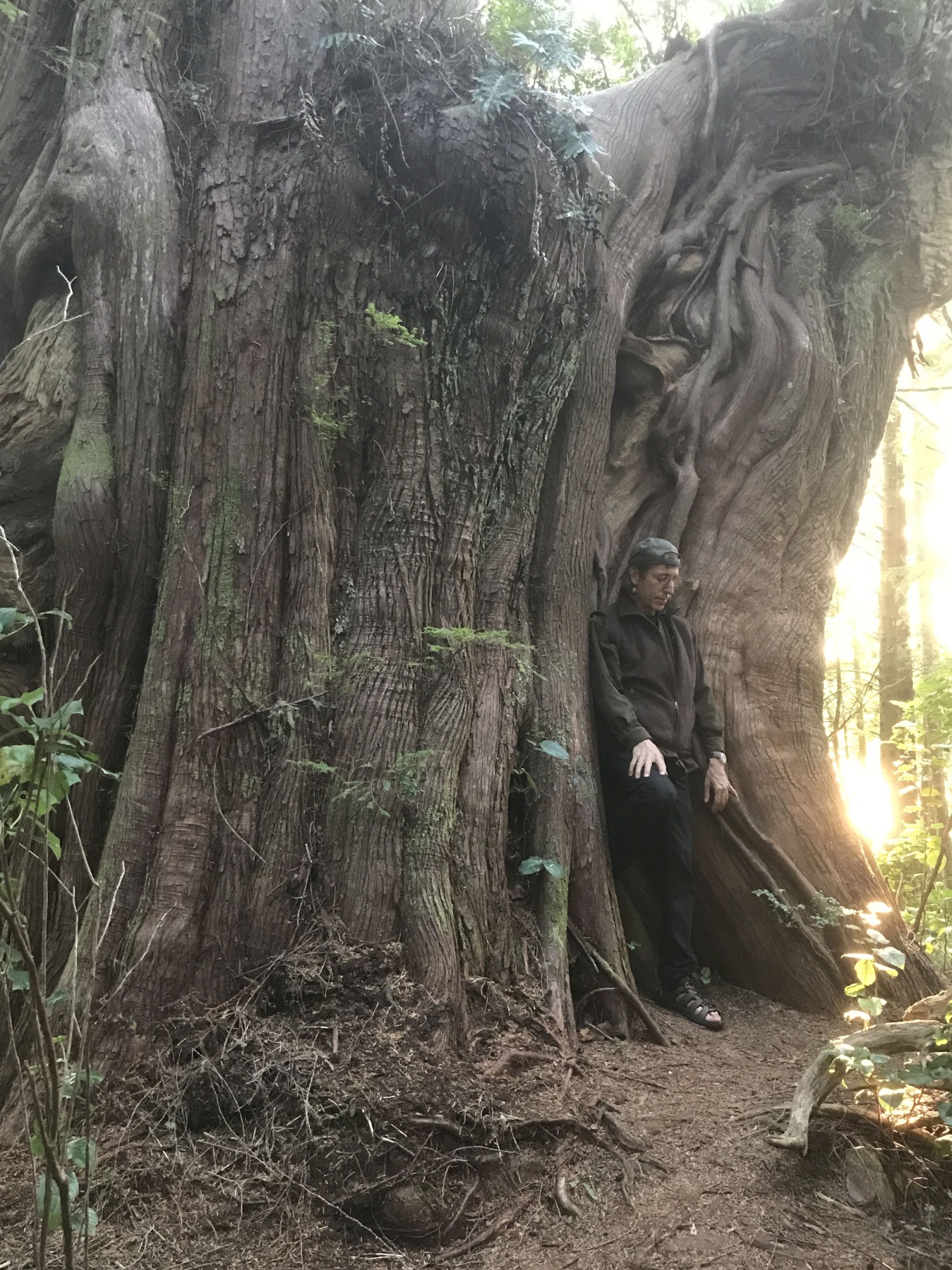
This, I hope, is the real work that we’re embarked on, whether we’re zoologists or botanists, whether we’re painters or sculptors or poets or composers or choreographers, or carpenters for that matter. Every one of us offering our creativity to the collaborative craft of listening and re-attuning our human societies to the animate landscapes that sustain them. In this way, perhaps, humankind can become less toxic to the winds and the waters than we have been in the past couple centuries. We can become more of a blessing, and a steady nourishment, to the wider Life that gives us breath.
